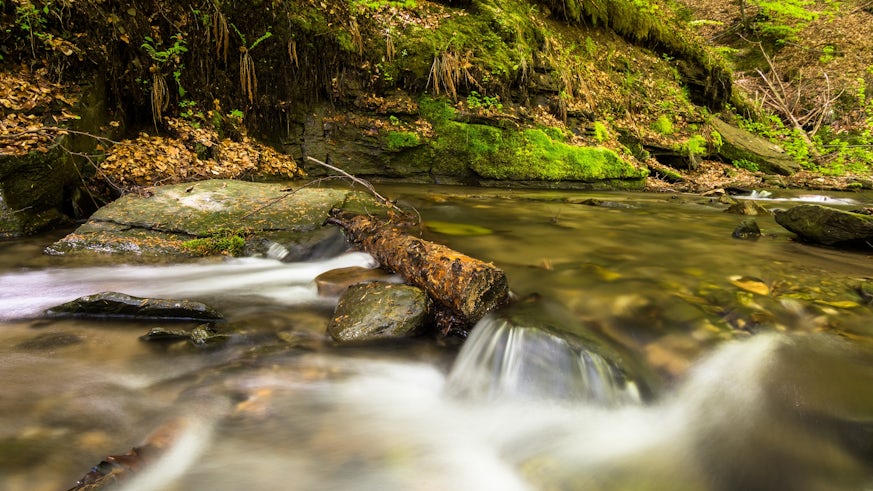PhD Insights: Bridging the gap between biology and engineering
11 May 2020

PhD student Stephanie Mueller conducts interdisciplinary research to explore fish responses to flow alterations caused by leaky barriers and turbines in riverine systems.
Currently, only 1% of the UK’s rivers remain free flowing (Jones et al 2019). New manmade structures are added to river systems in order to harness sustainable energy and mitigate flooding. Such obstructions alter the ecosystem influencing fish habitat selection and swimming performance often delaying or preventing migration. Changes essentially occur in the turbulent regime of the flow and can be beneficial or detrimental to fish.
Stephanie is a PhD student in the School of Engineering. Her research explores how fish respond to flow alterations in riverine systems with her main focus on alterations caused by two anthropogenic structures, including leaky barriers used for natural flood management and vertical axis turbines.
Through experiments at the Cardiff University fish facilities and flumes and at the Hydro-Environmental Research Centre’s laboratory, she investigates the impact for flow alterations on fish swimming kinematics and spatial usage of juvenile salmonids. Her observations will provide new insights on fish behaviour and habitat adaptation in relation to power extraction and flood mitigation schemes. It will help to foster the development and installation of turbines and natural flood management interventions in a sustainable, eco-friendly manner.

Stephanie's interdisciplinary work is part of a discipline called Ecohydraulics, which links hydraulics with aquatics ecology, water engineering and fluvial geomorphology and biogeochemistry. She therefore closely works together with researchers from the School of Biosciences.
Crossing the bridge between biology, ecology and engineering allows me to learn more about the interplay between hydrodynamic effects of hydraulic structures and the aquatic flora and fauna.
To fully understand the ecological implications of her work on hydraulic in-stream structures on the aquatic environment, she currently takes a course in fishery management at the Institute of Fisheries Management alongside her PhD.
Stephanie’s research is funded by the WISE Centre for Doctoral Training. Find out more about her work here or please contact her at MullerS1@cardiff.ac.uk.
Jones et al (2019) A comprehensive assessment of stream fragmentation in Great Britain, Sci. Total Environ, 673, 756–76
Share this story
For more information, visit the Water Research Institute website.



